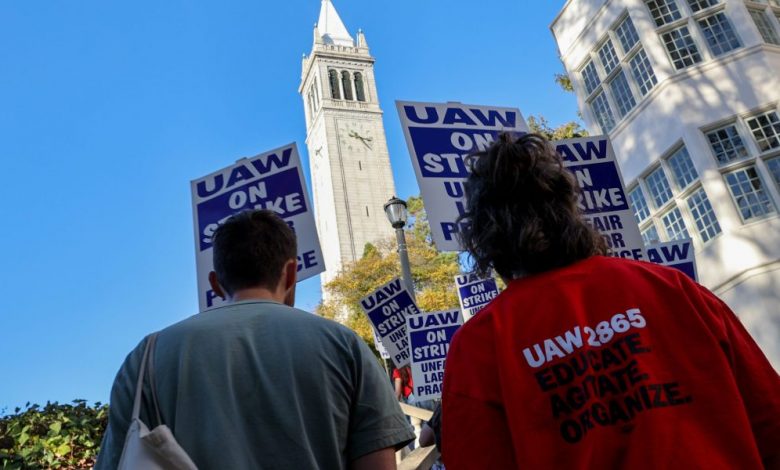Harvard, Berkeley and Yale withdraw from US News & World Report college rankings

The law school at the University of California, Berkeley on Thursday joined the law programs at Harvard and Yale, withdrawing from the US News & World Report rankings over fears they would penalize efforts to educate students with a broad spectrum of to wear backgrounds.
The deans of all three law schools said the magazine’s influential ranking system is biased against programs designed to increase socioeconomic diversity, support low-income students and encourage public service.
“We have reached a point where the ranking process is undermining the core commitments of the legal profession,” Yale Law School dean Heather K. Gerken wrote in a blog post Wednesday.
Eric Gertler, executive chairman and CEO of US News, said the rankings are designed to help students make the best decisions when choosing law school.
“We will continue to fulfill our journalistic mandate to ensure students can rely on the best and most accurate information when making this decision,” Gertler said in a written statement. “As part of our mission, we must continue to ensure that law schools are held accountable for the education they provide to these students, and that mission does not change with these recent announcements.”
In a later statement, US News said it would continue to rank all fully accredited law schools, regardless of whether they submit their data.
Some critics have viewed the US news rankings as a measure of privilege rather than educational quality.
While elite universities have enough prestige to forgo rankings, other schools often feel under competitive pressure, said Walter Kimbrough, interim executive director of the Black Men’s Research Institute at Morehouse College. They then track metrics that may not be useful to prospective students.
“You move up the rankings by becoming more selective, which means you exclude more people, especially a variety of people,” he said.
To address the root causes of injustice in law schools and in higher education more broadly, Kimbrough said institutions must go further. Smaller schools that serve a high proportion of low-income, disadvantaged students do not receive the same recognition and philanthropic support as elite schools.
“HBCUs live this work every day and do not receive the same rewards, both in the form of recognition and financial resources, for doing this work,” he said.
Not long after Yale’s announcement, Harvard Law School dean John Manning wrote in his own blog post Wednesday that he and other law school leaders had previously raised concerns about the rankings with US News. Specifically, he said prioritizing LSAT scores and college grades encourages law schools to use scholarships to attract higher-scoring candidates and divert resources away from need-based financial aid that would help less affluent students.
Berkeley Law School Dean Erwin Chemerinsky wrote in a letter published online Thursday that there is no benefit to participating in the rankings that outweighs the cost.
There are other ranking systems, such as that published by Washington Monthly, that give more weight to factors such as social mobility, research, and public service advancement.
“If you measure something, people will appreciate that,” said Harry Feder, executive director of the National Center for Fair and Open Testing, which has criticized the use of standardized tests in approvals. “If you measure how much law school graduates make, what do you think that does to the public interest of law school?”
Our new weekly Impact Report newsletter will examine how ESG news and trends are shaping the roles and responsibilities of today’s leaders – and how best to address these challenges. Subscribe here.



